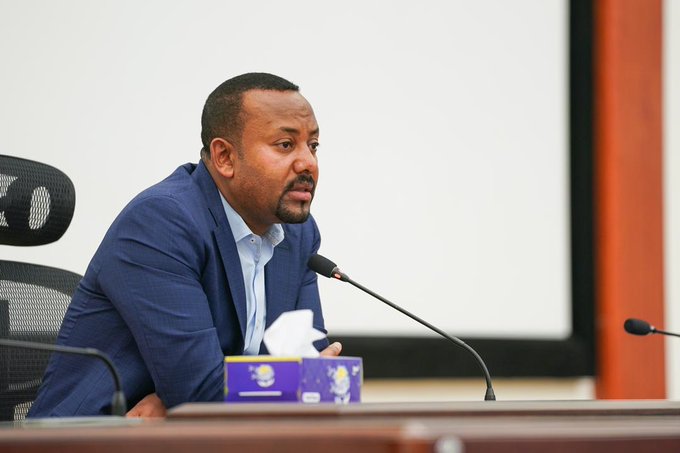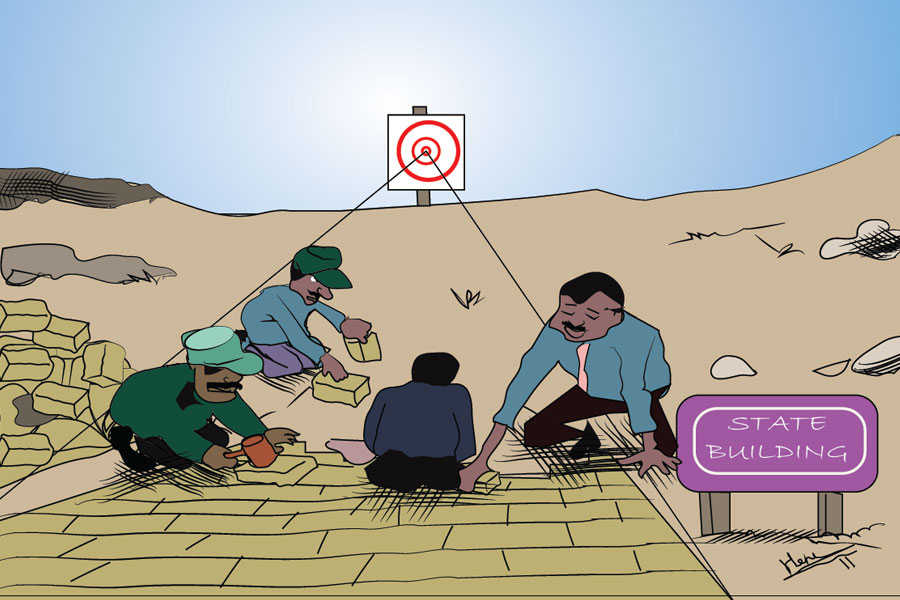
Radar | Jan 25,2020
Feb 27 , 2021
By Yehualashet Tamiru Tegegn
Ancient Greece Philosopher Cicero once said that a rational discussion on any topic should first define the subject matter. Thus, it is critical to state what is meant by "globalisation."
As a result of numerous invocations in various media outlets and books, the term has entered everyday language without having a universally accepted single definition. Globalisation is so broad a phenomenon that comprehensive description now seems almost futile. Nevertheless, the Peterson Institute for International Economics offers a helpful definition:
“The growing interdependence of the world’s economies, cultures, and populations, brought about by cross-border trade in goods and services, technology, and flows of investment, people, and information.”
In some instances, globalisation is synonymous with terms such as internationalisation, liberalisation, universalisation, Westernisation and even deterritorialisation. Although there is a gulf of difference as to the advantages of globalisation, virtually no one denies its existence.
As we used to know it, the concept of sovereignty has been eroded by globalisation. Traditionally, sovereignty, which stems from the treaties signed during the Peace of Westphalia, are understood to mean that every state has complete autonomy to determine what is going on and will be going in their territory. This is known as the Westphalian sovereignty, and it dates back to the 17th century.
Things have changed over the last few centuries. There is a new understanding of international law, which is sometimes referred to as world law, supernatural law or cosmopolitan law, to distinguish from the traditional precept established in the Westphalian cities of German.
Current international law governs not only the relationship between states but also between states and individuals. The process of creating, interpreting and enforcing international law is also vastly different.
One such area where an individual can claim more rights than what is provided under national law is human rights. The Universal Declaration of Human Rights is a common standard of achievement for all people and nations that expands the rights of people and the obligation of the states. Subsequent to this, various international treaties such as the international conventions on Civil and Political Rights, as well as the Economic and Social Rights, widen the rights of the individual. These international instruments provide rights and access to individuals to prosecute a state at international forums such as the European Court of Human Rights and the African Court on Human & People’s Rights.
The effect of globalisation is also well reflected in the power of states to regulate a domestic economy. In the traditional concept of internal sovereignty, states virtually single-handedly determine their economic policies regarding tariffs, quotas, state subsidies and safety standards. However, with the increasing prominence of international corporations, this right has become eroded.
For instance, under the World Trade Organisation (WTO), member states are free to determine the amount of tariff they want to charge. However, once they decide on a maximum tariff, they cannot charge over this rate. On top of this, under the WTO, quota and voluntary export restraints are prohibited. Member states can impose an equivalent tariff on any other member country that violates this rule. These two key instruments have two purposes: open market access for foreigners while at the same time restricting the power of the state to regulate.
One of the cornerstones of international trade is the principle of non-discrimination. A member state is neither allowed to discriminate its products against those of other countries nor extend more favourable treatment to any single WTO member that does not apply to all others.
Although there are exceptional circumstances that allow deviation from the principle, there are stringent requirements to benefit from them. For instance, agreements on products and services that impact human, animal and plant health make it clear that a discriminatory measure should be taken only based on sufficient scientific evidence. The exception should not be used to constitute a disguise of a restrictive policy. On top of this, under the WTO system, the Trade Policy Review and the dispute settlement mechanisms substantially affect state sovereignty.
Another prominent effect of globalisation is the proliferation of international organisations that have a legal personality. For instance, the International Monetary Fund (IMF), under its Poverty Reduction & Growth Facility, requires borrower countries to incorporate good governance and reform their domestic policy by raising taxes, cutting expenses and lifting restrictions on financial flow. Likewise, since the 1960s, the World Bank has been consistent in adopting and enforcing policy-based lending, which requires borrowers to reform the civil service, state-owned enterprises and the justice system.
Taken together, such economic and political international legal policies constrain the power of the state to regulate social life. K. Mills captures the impacts of globalisation in his famous essay, “Reconstructing Sovereignty: A Human Rights Perspective.”
“The dividing line between international law and domestic law is becoming increasingly blurred … the principle of non-intervention which has been the link between the internal and external dimension of sovereignty, correspondingly weakens,” he wrote.
We live in a time where the absolute sovereignty of a state, as we used to know it, is no longer a reality. There is an ever-growing interdependency among states that make it nearly impossible for any given country to act independently as much as it would like.
Although there is no single definition for the term globalisation, its existence and impacts are undoubted. As a result, states split their sovereignty with various regional and global institutions. Moreover, globalisation has forced states to shape and reconsider their domestic and foreign policies, which has ultimately eroded one of the central and defining features of a state: sovereignty.
PUBLISHED ON
Feb 27,2021 [ VOL
21 , NO
1087]


Radar | Jan 25,2020

Covid-19 | Apr 08,2020

Viewpoints | Nov 09,2024

Fortune News | Nov 13,2021

Editorial | Dec 10,2022

Fortune News | Jun 23,2019

Radar | Feb 22,2020

Radar | Oct 24,2020

Radar | Jul 02,2022

Editorial | Mar 23,2019

My Opinion | 131499 Views | Aug 14,2021

My Opinion | 127855 Views | Aug 21,2021

My Opinion | 125833 Views | Sep 10,2021

My Opinion | 123463 Views | Aug 07,2021

Dec 22 , 2024 . By TIZITA SHEWAFERAW
Charged with transforming colossal state-owned enterprises into modern and competitiv...

Aug 18 , 2024 . By AKSAH ITALO
Although predictable Yonas Zerihun's job in the ride-hailing service is not immune to...

Jul 28 , 2024 . By TIZITA SHEWAFERAW
Unhabitual, perhaps too many, Samuel Gebreyohannes, 38, used to occasionally enjoy a couple of beers at breakfast. However, he recently swit...

Jul 13 , 2024 . By AKSAH ITALO
Investors who rely on tractors, trucks, and field vehicles for commuting, transporting commodities, and f...

Jun 28 , 2025
Meseret Damtie, the assertive auditor general, has never been shy about naming names...

Jun 21 , 2025
A well-worn adage says, “Budget is not destiny, but it is direction.” Examining t...

Jun 14 , 2025
Yet again, the Horn of Africa is bracing for trouble. A region already frayed by wars...

Jun 7 , 2025
Few promises shine brighter in Addis Abeba than the pledge of a roof for every family...

Jun 29 , 2025
Addis Abeba's first rains have coincided with a sweeping rise in private school tuition, prompting the city's education...

Jun 29 , 2025 . By BEZAWIT HULUAGER
Central Bank Governor Mamo Mihretu claimed a bold reconfiguration of monetary policy...

Jun 29 , 2025 . By BEZAWIT HULUAGER
The federal government is betting on a sweeping overhaul of the driver licensing regi...

Jun 29 , 2025 . By NAHOM AYELE
Gadaa Bank has listed 1.2 million shares on the Ethiopian Securities Exchange (ESX),...